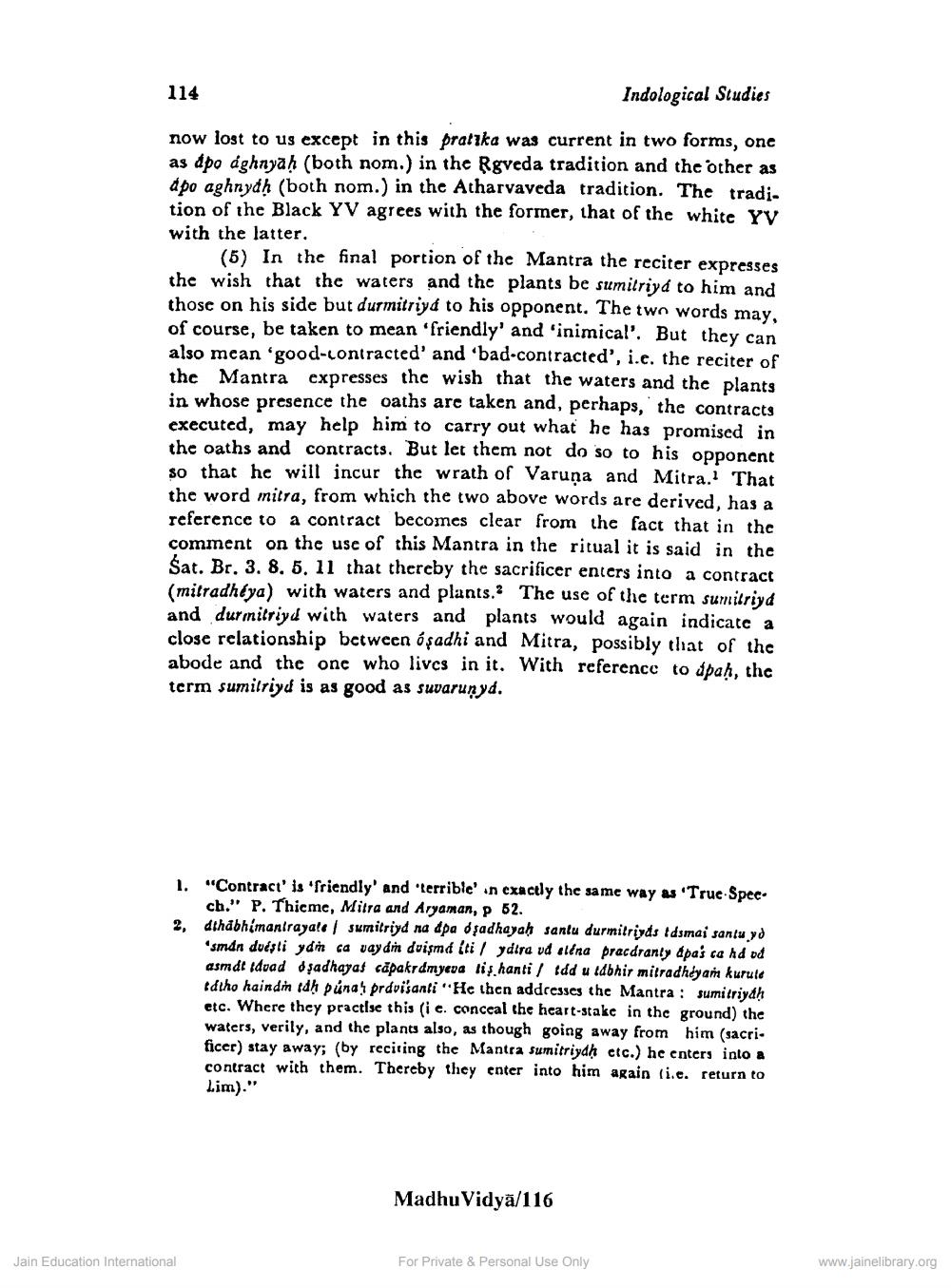________________
114
Indological Studies
now lost to us except in this pratika was current in two forms, one as dpo dghnyah (both nom.) in the Rgveda tradition and the other as dpo aghrydh (both nom.) in the Atharvaveda tradition. The tradi. tion of the Black YV agrees with the former, that of the white YV with the latter.
(5) In the final portion of the Mantra the reciter expresses the wish that the waters and the plants be sumitriya to him and those on his side but durmitriya to his opponent. The two words may. of course, be taken to mean 'friendly' and 'inimical'. But they can also mean 'good-contracted' and 'bad-contracted', i.e. the reciter of the Mantra expresses thc wish that the waters and the plants in whose presence the oaths are taken and, perhaps, the contracts executed, may help him to carry out what he has promised in the oaths and contracts. But let them not do so to his opponent so that he will incur the wrath of Varuņa and Mitra.? That the word mitra, from which the two above words are derived, has a reference to a contract becomes clear from the fact that in the comment on the use of this Mantra in the ritual it is said in the Sat. Br. 3. 8. 5. 11 that thereby the sacrificer enters into a contract (mitradhéya) with waters and plants. The use of the term sumilriyd and durmitriyd with waters and plants would again indicate a close relationship between óşadhi and Mitra, possibly that of the abode and the one who lives in it. With reference to spah, the term sumilriyd is as good as suvarunyd.
"Contract' is 'friendly' and 'terrible' in exactly the same way as 'True Spec. ch." P. Thicmc, Mitra and Aryaman, P 52. dthabhiman raya! semitriyd na dpa oşadhayah santu durmitriyds tdsmai santu yo
smdn duesli ydin ca vay dm duismd iti / ydtra vd aléna pracdranty dpas ca hd vd asmdt dvad osadhayaf capakrdmyeva lishanti/ idd u idbhir mitradhéyan kuruld totho haindin dhe puna, prdvisanli 'He then addresses the Mantra : sumitriydh etc. Where they practise this (i c. conceal the heart-stake in the ground) the waters, verily, and the plants also, as though going away from him (sacri. ficer) stay away; (by reciting the Mantra Sumitriydḥ etc.) he enters into a contract with them. Thereby they enter into him again fi.e. return to Lim)."
Madhu Vidyā/116
www.jainelibrary.org
For Private & Personal Use Only
Jain Education International




